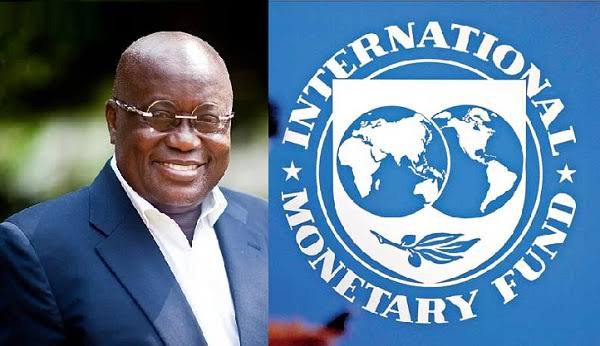Ghana secured a staff-level agreement with the International Monetary Fund for a $3 billion bailout, a key step in the West African nation’s plans to restructure its unsustainable debt.
The accord, which still requires IMF board approval, enables the government to address its precarious public finances and support the cedi — the world’s worst-performing currency this year. Investor concerns about ballooning government debt — forecast to exceed the size of its economy this year — led to a selloff of government bonds this year that effectively locked the country out of international capital markets.

“The economic program aims to restore macroeconomic stability and debt sustainability while laying the foundation for stronger and more inclusive growth, said IMF Ghana Mission Chief Stéphane Roudet. The agreement is also subject to the receipt of the necessary financing assurances by Ghana’s partners and creditors,” he said.
Ghana’s benchmark 10-year Eurobond surged the most since November 23, with the yield dropping 112 basis points to 28.42% by 10.10am in Accra, the capital. The cedi extended its gains and traded as much as 4.2% stronger at 11.50/$, bringing its world-beating gains this month to 22%.
Ghana secured the IMF deal after asking local bondholders to accept losses on interest payments, while excluding a haircut on their principal.
International bondholders may be asked to accept losses of as much as 30% on their principal and forgo some interest, deputy finance minister John Kumah said last month, before the latest round of talks with the IMF began.
Finance minister Ken Ofori-Atta also announced measures last month to cut spending and boost revenue to help lower the budget deficit to 7.7% of GDP on a commitment basis in 2023, from 9.9% this year.
“Together with efforts to bring the government deficit down, the authorities have announced a comprehensive debt operation to ensure debt sustainability,” the IMF said.
“We welcome policies to ensure the sustainability of public finances, including the planned fiscal adjustment and medium-term policies to lay the foundation for strong and inclusive growth while protecting the vulnerable.”
The country had 393.4-billion cedis of debt at end-June, and debt-service costs equivalent to 68% of tax revenue over the same period, according to budget data.
While the world’s second-biggest cocoa producer has no dollar debt maturing until July 2023, it faces 43.5-billion cedis of domestic local-currency bonds maturing to end-June. On top of that, it has $663m of coupon payments on dollar debt due by that date.